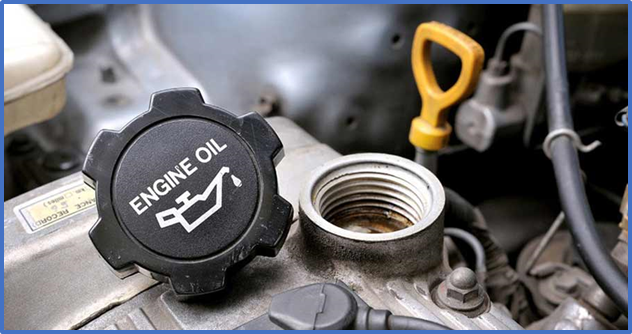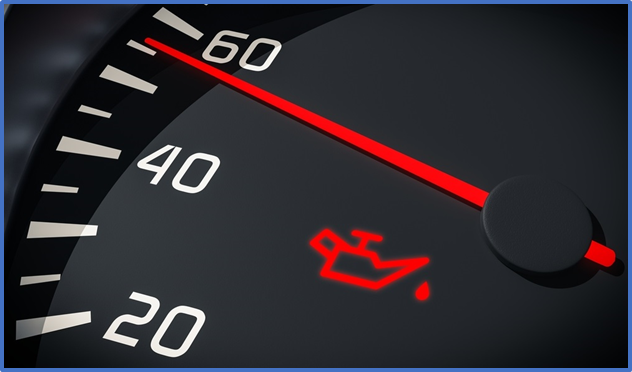Recognizing Signs of Low Oil Pressure in Your Acura

Recognizing the signs of low oil pressure is one of the most important steps in maintaining your Acura's engine health. Engine oil provides the lubrication needed for hundreds of moving parts, which reduces friction, minimizes heat, and keeps the engine running smoothly. When oil pressure drops, it can lead to issues like overheating and long-term engine damage. Identifying these signs early helps prevent costly repairs and ensures your Acura performs reliably.
This article covers the main signs of low oil pressure, along with the common causes and practical solutions to address the issue.
Why is Oil Pressure Important?
Oil pressure keeps all internal engine components properly lubricated, which reduces friction and wear. Low oil pressure means less lubrication, causing parts to grind together, which generates excess heat and accelerates engine wear. Over time, low oil pressure can lead to serious problems like overheating and even engine failure.
Symptoms of Low Oil Pressure

Knowing the symptoms of low oil pressure can help you fix the problem before it causes major engine damage. Here are some common signs of low oil pressure:
1. Oil Pressure Dashboard Light
One of the most immediate signs of low oil pressure is the oil pressure warning light on your dashboard. This light activates when the oil level or pressure drops below a safe threshold. If the oil light illuminates, avoid operating the vehicle until you check the oil levels. If you find you need to add oil regularly, this could signal a leak or other issue.
2. Noise Under the Hood
Low oil pressure often causes knocking, grinding, or ticking sounds from under the hood. These noises indicate that engine parts aren’t receiving adequate lubrication, leading to metal-on-metal contact. If you hear unusual noises, check the oil level right away to avoid further engine damage.
3. Burning Smell
The smell of burning oil suggests that oil is leaking onto hot engine components. This often occurs when oil levels are low or there’s a leak. If you detect a burning smell, turn off your car, let it cool, and inspect for leaks under the hood.
4. Overheating Engine
Inadequate oil pressure reduces engine lubrication, causing friction that generates excess heat. An overheating engine is a serious condition that can cause permanent damage if left unresolved. If your Acura starts to overheat, check the oil pressure and levels to address the issue promptly.
5. Drop in Fuel Economy
A drop in fuel efficiency is another sign of low oil pressure. When the engine isn’t properly lubricated, it has to work harder, resulting in reduced fuel efficiency. If you notice decreased miles per gallon, it’s worth investigating whether low oil pressure could be the cause.
Common Causes of Low Oil Pressure
Understanding the causes of low oil pressure can help you prevent future issues and keep your vehicle running smoothly. Here are some of the main causes:
- Low Oil Levels: Low oil levels are a primary cause of low pressure. Regularly check your oil levels, as persistently low levels could indicate a leak or other issue.
- Worn-Out Oil Pump: The oil pump circulates oil throughout the engine. If it becomes worn, oil flow and pressure drop, resulting in inadequate lubrication.
- Dirty or Clogged Oil Filter: An oil filter removes impurities, but if it becomes clogged, it can obstruct oil flow, lowering pressure. Replacing the filter regularly prevents these blockages.
- Incorrect Oil Viscosity: Using oil with the wrong viscosity can also result in low oil pressure. Refer to your Acura manual to ensure you’re using the recommended oil type.
- Faulty Oil Pressure Sensor: Sometimes, low oil pressure readings are due to a malfunctioning sensor. If the sensor is faulty, it may falsely indicate low pressure. Have it checked if symptoms seem inconsistent.
Diagnosing Low Oil Pressure
To determine if low oil pressure is the issue, follow these steps:
- Check Oil Levels: Use the dipstick to confirm oil levels are within the recommended range.
- Inspect for Oil Leaks: Look for leaks under the vehicle and near the oil filter.
- Listen for Engine Noises: Pay attention to knocking or grinding sounds from under the hood.
- Visit a Mechanic for a Pressure Test: A mechanic can use an oil pressure gauge to confirm if there’s an issue with oil pressure.
How to Fix Low Oil Pressure in an Acura
Once you’ve confirmed low oil pressure, take these steps to restore it and prevent engine damage:
- Top Up or Change the Oil: Low oil levels can often be remedied by adding more oil or doing a full oil change. Use the oil type and viscosity recommended for your Acura.
- Replace the Oil Filter: If the filter is clogged, it can restrict oil flow. Regular filter changes are essential to keeping oil pressure stable.
- Fix Oil Leaks: Inspect and repair any leaks to maintain proper oil levels. Check areas around the oil pan and gaskets where leaks are most common.
- Replace the Oil Pump (If Necessary): A failing oil pump can cause low oil pressure and may require professional replacement.
- Use the Correct Oil Viscosity: Using the manufacturer-recommended oil viscosity helps maintain optimal oil pressure and engine performance.
Preventive Measures to Maintain Healthy Oil Pressure
Proactive maintenance can help you avoid low oil pressure issues. Follow these tips to keep your Acura in top shape:
- Regular Oil Changes: Stick to Acura’s recommended intervals.
- Use Quality Oil and Filters: Quality oil and filters prevent premature wear and improve engine longevity.
- Monitor Performance: Watch for changes in fuel efficiency and unusual noises.
- Check for Leaks: Regularly inspect your engine for leaks that could reduce oil pressure.
Conclusion
Recognizing the signs of low oil pressure can help you prevent costly and potentially serious engine issues. Early detection and prompt action, such as topping up oil or replacing parts, can keep your Acura running smoothly. If you experience any of these symptoms, check your oil pressure, and address the issue immediately. For quality parts like oil pumps, filters, and more, explore our Acura Parts catalog, or consult one of our experts for further assistance in maintaining your vehicle’s health.
Related Articles